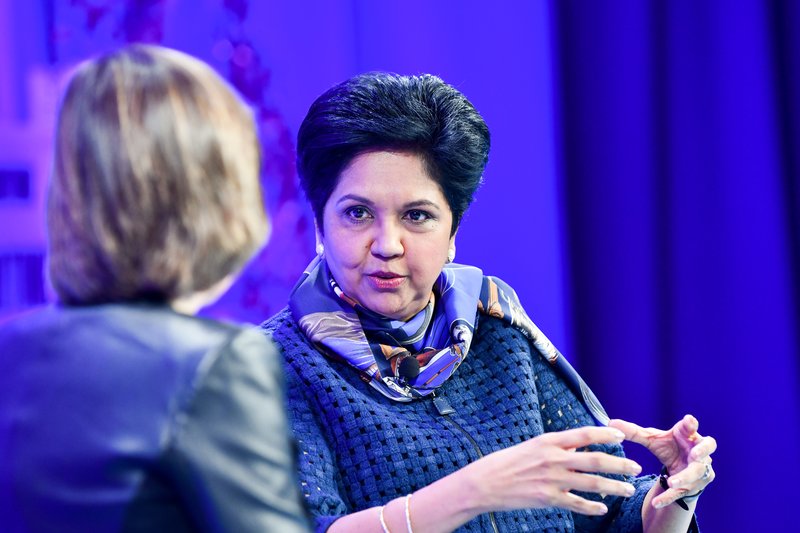
|
作为跨国公司的首席执行官,我去过很多地方。每次出国,我都会和不认识的人见面,吸收不同的文化,敬畏地欣赏这颗非凡的星球。 但在许多地方我看到一些并不美好的画面,就是数量惊人的废弃物,常常弃置在路边,堆积在城市里,还污染了海洋。这让我深感不安,而更让我难受的是这一切本可以防止。我们必须做出改变,而且可以从家门口开始。 这几年,美国对铝和许多普通塑料的回收利用率不断下降。结果就是每年有2200万吨的可回收生活废弃物被掩埋。实际上,研究表明在美国近70%的可回收塑料瓶最终被掩埋、扔在街上或抛进了大海。 美国人已经放弃回收利用废品了吗?我认为并不是。近四分之三的人都表示回收利用很重要,而且应该优先处理。 更有可能的情况是,美国人只是不知道究竟怎么回收废品,或者找不到废品回收箱。百事公司在回收利用方面的投资已经持续近10年,途径包括废品回收项目PepsiCo Recycling Program以及Closed Loop Fund等组织。仅在美国,我们就为废物回收利用投入了大约5500万美元。我们还是美国最大的回收塑料使用者之一。如果有更多的回收塑料,我们还会继续买下。但我们意识到,这些措施还不够。 正因如此,百事开始和旨在促进废品回收利用的组织The Recycling Partnership合作,共同推出了“全方位回收”(All In On Recycling)活动,目标是未来五年改变生活废弃物回收利用率下降的情况。我们的共同目标是在五年里从美国各地的家庭多回收70亿个容器以及其他可回收物。 我们还发出挑战,让人们自行制定“全方位回收”目标加入活动。作为此项挑战的一部分,百事基金会(PepsiCo Foundation)拿出了1000万美元,我们希望发展成规模达2500万美元的行业基金。除了饮食行业贡献,参加此项活动的2800多个社区将筹集大约三倍,也就是7500万美元的市政资金,最终投入的资金达到1亿美元。 这些资金将帮助2500万个家庭,提供重要的回收利用教育和多家庭回收利用项目。另外,每个垃圾桶旁边都应该有一个废品回收箱,因此我们将提供路边手推车——实践证明采取此举后回收的废品数量可以翻倍。The Recycling Partnership估算,如果多利用回收材料而不是制造全新产品,二氧化碳排放量可以减少550万吨,相当于路上少了100多万辆汽车。 当然,要解决全世界的废品回收问题不能只靠某项合作。还需要新的思路,包括和政府决策机构就监管框架进行合作,从而鼓励废品回收,让全世界最聪明的人聚在一起,用创新方法解决问题。百事内部已经采取行动,比如少用包装材料以及投资新技术,争取到2025年实现所有包装材料都可回收、可堆肥或者可生物降解的目标。 我一直认为企业无法在真空中运作,我们对社区负有责任。但许多公司在回收产品方面都没有承担起相应的责任,而且长期如此。如果其他公司愿意和我们一起进行“全方位回收”,情况就可以改变。今天就开始行动吧。(财富中文网) 卢英德是百事公司董事长兼首席执行官。 译者:Charlie 审校:夏林 |
As CEO of a global company, I do a lot of traveling. Every time I go abroad, I meet new people, absorb different cultures, and gaze in awe at the beauty of our extraordinary planet. But in too many places, I also see something else: an alarming amount of waste by the side of the road, piling up in our cities and polluting our oceans. It’s deeply troubling, all the more so because it’s altogether preventable. Something has to change, and we can start here at home. Over the past few years, recycling rates for aluminum and many common plastics have been falling in the United States. The result: 22 million tons of household recyclables are landfilled every year. In fact, studies show that almost 70% of all potentially recyclable plastic bottles in the United States end up in landfills, on the street, or in the ocean. Have Americans given up on recycling? I don’t think so. Nearly three-fourths say they believe recycling is important and should be a priority. More likely, Americans simply don’t know exactly how to recycle, or lack ready access to a recycling bin. At PepsiCo , we have been investing in recycling for almost 10 years through the PepsiCo Recycling Program and organizations like the Closed Loop Fund, committing a total of approximately $55 million to recovery efforts in the U.S. alone. We are also one of the largest users of recycled plastic in the U.S. In fact, if more were available, we’d buy it. But we recognize that these efforts are simply not enough. That’s why PepsiCo is partnering with The Recycling Partnership on an initiative we’re calling “All In On Recycling” to reverse the decline in U.S. residential recycling rates over the next five years. Together we’re aiming to capture as many as 7 billion additional containers over that period, along with other recyclable materials from households across the United States. And we’re challenging others to join us by making their own commitment to go “All In On Recycling.” As part of the challenge, the PepsiCo Foundation is investing $10 million in what we hope will become a $25 million industry-wide fund. In addition to the contributions from our industry, the more than 2,800 communities that participate in the initiative will triple our collective investment, catalyzing roughly $75 million in municipal funding, and bringing the total amount of support to $100 million. That support will help 25 million families by providing critical recycling education and single and multi-family home recycling programs. And because every trash can should have a recycling bin by its side, we’ll offer curbside carts—a proven way to double the amount of recyclables recovered. The Recycling Partnership also estimates that by using recycled materials instead of manufacturing new ones, this collaboration will allow us to avoid emitting 5.5 million tons of CO2, the equivalent of removing more than 1 million cars from the road for a year. Of course, what’s required to meet the challenge of recycling the world’s waste is more than a single partnership. What’s required are new ways of thinking, including working with policymakers on regulatory frameworks that can encourage recycling, and bringing together some of the world’s most brilliant minds to innovate our way out of this problem. We’ve been trying to do our part at PepsiCo by using less packaging material and investing in new technologies to meet the goal of having 100% of our packaging be recyclable, compostable, or biodegradable by 2025. I’ve always believed corporations do not operate in a vacuum—we have responsibilities to the communities we serve. For too long, many companies have not met those responsibilities when it comes to recycling the products we make. If other companies are willing to join us and go “All In On Recycling,” that can change—starting today. Indra K. Nooyi is chairman and CEO of PepsiCo. |






